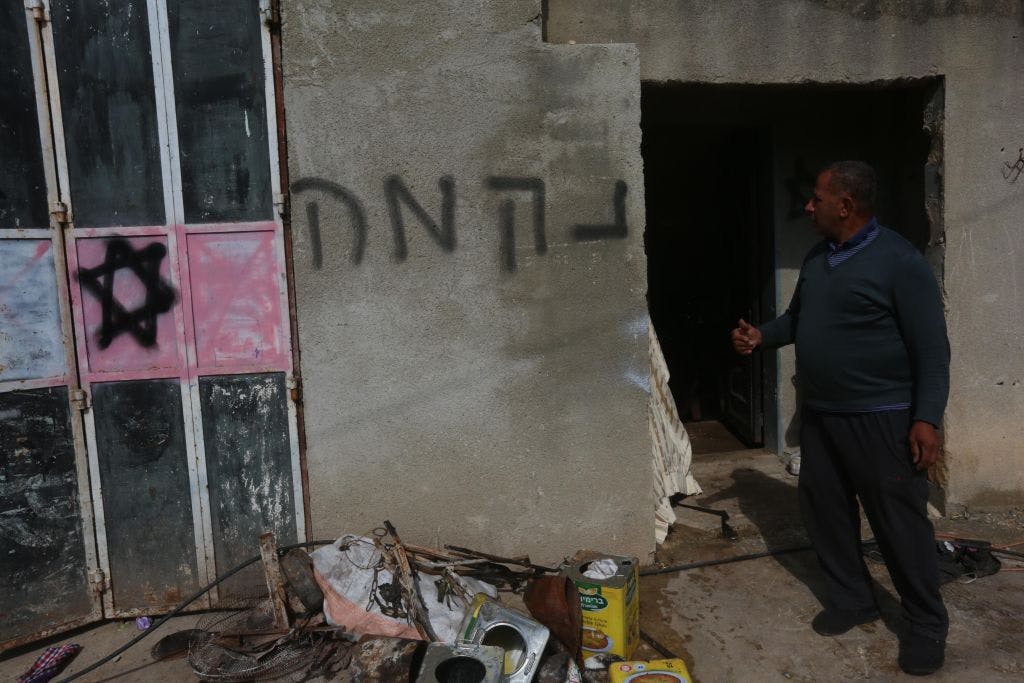Published: 13 January 2023
Last updated: 5 March 2024
Israel will certify the first women under its state rabbinic qualification next week, but no one is offering them jobs as rabbis.
For the first time, Israel’s Ministry of Religion is granting certificates of halachic mastery to women. Twelve Orthodox women who studied at women’s institutes for Jewish learning in Israel have passed an exam, which men take to become state rabbis.
It is the first time that any state body has formally approved women’s aspirations and abilities to become professional religious leaders.
The certification, the first of a group of six taken by men to become rabbis, may also have important practical and economic value because it may be accepted in future as an employment qualification, enabling women to apply for state jobs that require rabbinic certification.
Rabbanit Yaffa Aranoff was among the women who passed the exam. The 49-year-old mother-of-five has spent the past four-and-a-half years rigorously studying halacha at the Midreshet Lindenbaum Susie Bradford’s Institute of Halachic Leadership in Jerusalem. For Aranoff, originally from New York, this exam was more than simply a test. It was a way to ensure that there are equal opportunities for men and women.
“Women should never feel like the world of Torah is not for them … it’s for everyone,” she said.
The test functions for her as recognition for her halachic knowledge, “to say that I am halachically competent like a man”.
"This is far from equality, which is why we are continuing the Supreme Court petition.”
Attorney Ella Sakat
The process to get the Israeli government to recognise Orthodox women as rabbi-equivalents began two years ago when a group of learned women brought a class-action petition to the Supreme Court to force the rabbinate to allow them to sit rabbinic exams. They argued that as certain state funded jobs are only available to rabbis – that is, people who were tested and certified in processes that exclude women – the process discriminates against women’s right to equal employment and equal pay and violates the Basic Law on equality.
The Rabbinate counterargued that to allow women to take this exam would require breaking halacha, something the Supreme Court said it cannot require of the state’s governing religious organisation. The Supreme Court has not yet issued a ruling.
But the women found an open door during the previous government, with Yesh Atid then religious affairs minister Matan Kahana, a Modern Orthodox Knesset member who supports women’s advancement in Jewish life. He created a mechanism through his office for allowing women to sit for exams that parallel the rabbinate’s exams.
Kahana hired Rabbanit Mali Sztrigler as project director for this historic endeavour. She explained that she worked together with the six women’s institutions of higher Jewish learning in Israel in order to perfectly replicate structure, content, and rigor of the standard rabbinate exams and to make sure that the institutions shared the same curriculum.

She also put together a committee of leading Orthodox rabbis and women graduates of these programs – most of whom use the title “Rabbanit” – in order to give the process legitimacy.
“The train has left the station,” Sztrigler told The Jewish Independent. “Women have been waiting for this opportunity for years.”
She sees the achievement as primarily religious, not feminist.
“These women are not coming from a feminist calling. It’s not ‘Anything you can do I can do better.’ It’s a conservative process and not a feminist process.”
The battle is far from over. Of the six institutions, so far only two have sent women to sit for these exams and none have joined the Supreme Court petition. No other government offices have recognised the validity of the exam as an employment qualification.
“There’s still a very long way to go,” said Rabbanit Devora Evron, the head of Midreshet Lindenbaum’s Susie Bradford’s Institute of Halachic Leadership whose students were among the test-takers. “However, every journey starts with a step forward. One of the main things was that we all worked together – all six programs worked together and that’s important.”
“This is a compromise,” Aranoff said. “It’s not via the rabbinate, but it’s not nothing.”
For the women struggling to get state recognition, the achievement is too little. “These tests have not been recognised by a single other ministry, so it’s currently not worth anything,” said attorney Ella Sakat who is representing the petitioners. “In my view, that is not enough. This is far from equality, which is why we are continuing the Supreme Court petition.”
Still, the women who took the test have experienced a positive boost in the media and in the community. Aranoff describes the experience of being stopped on the street and congratulated by strangers, with people expressing excitement that woman can attain great heights of halachic knowledge – and even recognition, and that there are institutions dedicated to teaching women to the highest level in a space that has previously been unavailable to them.
She says this is one of the reasons she decided to enrol in her course, to enrich her classrooms as an educator and inspire the next generation. “You teach them in an exciting way, you get them engaged, you teach them that the world of Torah is just so inspiring.”
Additional reporting by Elana Sztokman
Photo: Women studying at Midreshet Lindenbaum (Midreshet Lindenbaum)




